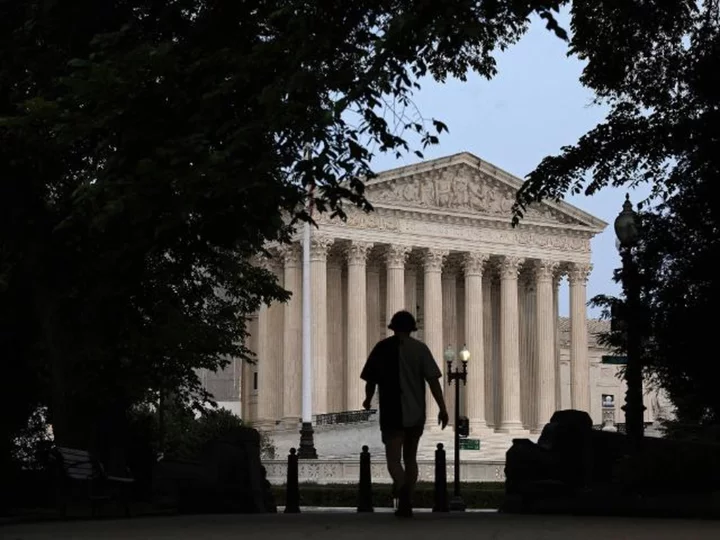
Supreme Court rejects challenges to a federal law that prioritizes the adoption of Native American children by Native families or tribes
The Supreme Court on Thursday left intact a decades-old law that prioritizes the placement of Native American children with Native families or tribes in child custody proceedings, rejecting challenges brought by several adoptive parents.
2023-06-15 22:57

Justice Department charges Marine in firebombing of California Planned Parenthood clinic
An active-duty Marine and another individual have been charged with using a Molotov cocktail to firebomb a Planned Parenthood clinic in Costa Mesa, California, in March 2022, the Justice Department announced Wednesday.
2023-06-15 06:19
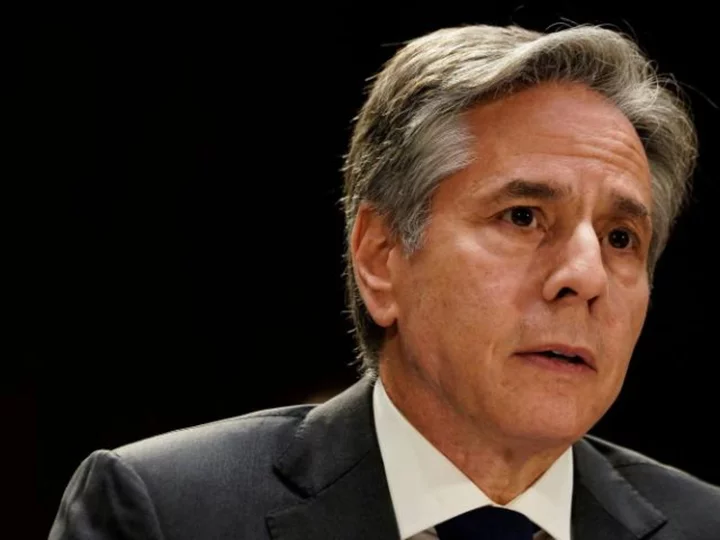
Blinken to travel to China this weekend
US Secretary of State Antony Blinken will travel to Beijing this weekend, the State Department announced on Wednesday -- a significant trip that comes as the Biden administration navigates its complicated relationship with China.
2023-06-14 20:24

Supreme Court sides with Jack Daniel's in trademark dispute involving a poop-themed dog toy
The Supreme Court on Thursday sided with Jack Daniel's in a dispute over a poop-themed dog toy that parodies its iconic liquor bottle.
2023-06-08 22:21
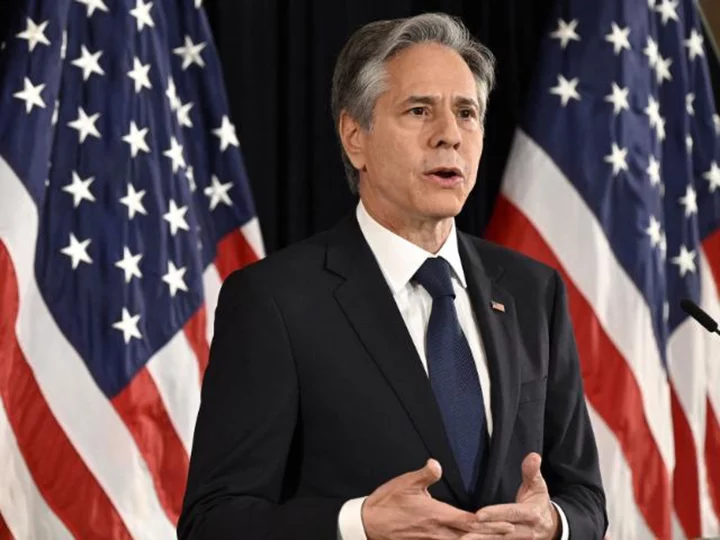
Blinken planning to visit China in coming weeks
US Secretary of State Antony Blinken is expected to travel to China in the coming weeks, two US officials and a source familiar with the matter told CNN, as the two countries work to reset normal relations amid what has been an extremely tumultuous and tense year in the relationship.
2023-06-07 00:21

Takeaways from CNN's town hall with Nikki Haley
Former United Nations ambassador Nikki Haley made a forceful case for the United States' support for Ukraine, a stark contrast with the leaders of the Republican 2024 presidential field, in a CNN town hall Sunday night in Iowa.
2023-06-05 09:19
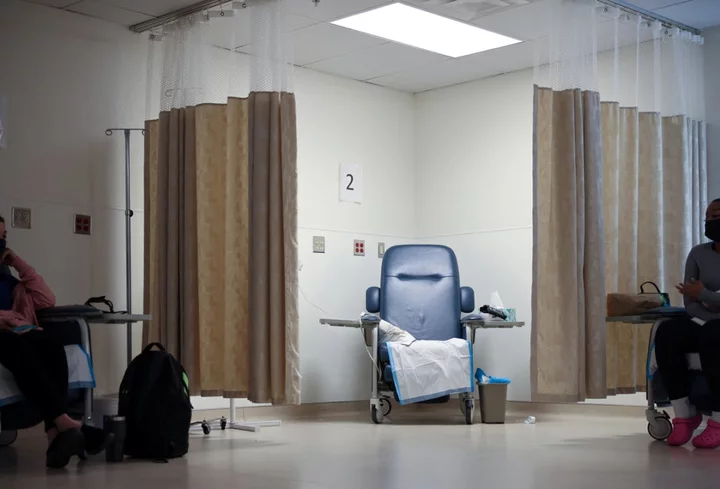
Oklahoma’s Supreme Court struck down two abortion bans. But a 113-year-old law is severely restricting access
Weeks before the US Supreme Court overturned Roe v Wade last year, Oklahoma’s Republican governor vowed to “outlaw” abortion in the state entirely, and pledged to sign any legislation that promised to do just that. Governor Kevin Stitt signed several anti-abortion bills into law, including a measure that outlaws abortion at roughly six weeks of pregnancy, and another banning all abortions with exceptions only to save the patient’s life in a medical emergency or if the pregnancy is the result of rape, sexual assault or incest that has been reported to law enforcement. On 31 May, the highest court in the state struck down both of them. But abortion access remains out of reach for most patients in the state, after that same court upheld a far-reaching abortion ban from more than 100 years ago earlier this year. A state law from 1910 makes it a felony punishable up to five years in prison for anyone to perform or help someone seek an abortion unless to save the patient’s life. “This ruling, while providing clarity in emergency situations, does not change the landscape of care significantly,” Emily Wales, president and CEO of Planned Parenthood Great Plains, said in a statement. Oklahoma was the first state in the US to successfully outlaw abortion despite a constitutional right to abortion care that was affirmed by Roe v Wade. But in March, the state’s Supreme Court ruled that the state’s constitution “creates an inherent right of a pregnant woman to terminate a pregnancy when necessary to preserve her life,” though the court declined to weigh in on whether the constitution protects abortion access in other circumstances. The court also ruled that doctors should be able to use their own medical judgment to determine whether to provide an abortion when a patient’s life is at risk “due to the pregnancy itself or due to a medical condition that the woman is either currently suffering from or likely to suffer from during the pregnancy.” But it also preserved the 1910 law, a 113-year-old ban on abortion care that threatens providers with prison. The court’s decision on 31 May reaffirmed its decision recognising a right to abortion care in life-threatening cases, and struck down two the overlapping bans. In the months after the Supreme Court’s decision in Dobbs v Jackson Women’s Health Organization, which struck down a constitutional right to abortion care, clinics in Oklahoma have been forced to close, and patients have traveled thousands of miles for legal abortion care in a region surrounded by states where abortion is severely restricted or effectively outlawed. Even in cases of emergencies, there appears to be no hospital in Oklahoma that provides “clear, consistent policies for emergency obstetric care to pregnant patients,” according to an April report from Physicians for Human Rights, Oklahoma Call for Reproductive Justice and the Center for Reproductive Rights. Oklahoma hospitals “offered opaque, contradictory, and incorrect information about abortion availability and approval processes in obstetric emergencies, as well as little reassurance that clinicians’ medical judgment and pregnant patients’ needs would be prioritized,” according to the report. Only two out of 24 hospitals described providing legal support for providers in such situations, and representatives for three hospitals claimed their facilities do not provide abortions at all, the report found. Abortion rights advocates welcomed the court’s decision on 31 May, which abortion rights advocates said will at least allow doctors to clearly rely on their own medical judgment to provide care when a patient’s life is in jeopardy. “After months of uncertainty and chaos, Oklahomans should finally be able to access the life-saving care they need in their home state,” according to Dr Alan Braid, an abortion provider and plaintiff in the case challenging the overlapping abortion bans. “Heartbreakingly, we were forced to close our Tulsa clinic due to Oklahoma’s abortion bans, but I will continue to serve patients in the region at clinics in Illinois and New Mexico,” he added. “While we are relieved the court upheld the right to abortion in medical emergencies, this does not diminish the fact that care remains out of reach for the majority of Oklahomans,” according to Ms Wales. Following the state Supreme Court decision on 31 May, Oklahoma Attorney General Gentner Drummond clarified that “except for certain circumstances outlined in that statute, abortion is still unlawful in the state of Oklahoma” because of the 1910 law. Governor Stitt accused the court of using “activism to create a right to an abortion in Oklahoma.” “This court has once more over-involved itself in the state’s democratic process, and has interceded to undo legislation created by the will of the people,” he said in a statement. Within the last year, more than a dozen states – including most of the entire US South – have outlawed abortion care for most pregnancies. Read More ACLU sues Nebraska over combined law targeting abortion and gender-affirming care: ‘Egregious overreach’ South Carolina judge halts six-week abortion ban as state Supreme Court set to review new law Doctor who provided abortion care to 10-year-old rape survivor reprimanded in case that drew national scrutiny Anti-abortion laws harm patients facing dangerous and life-threatening complications, report finds
2023-06-01 07:15
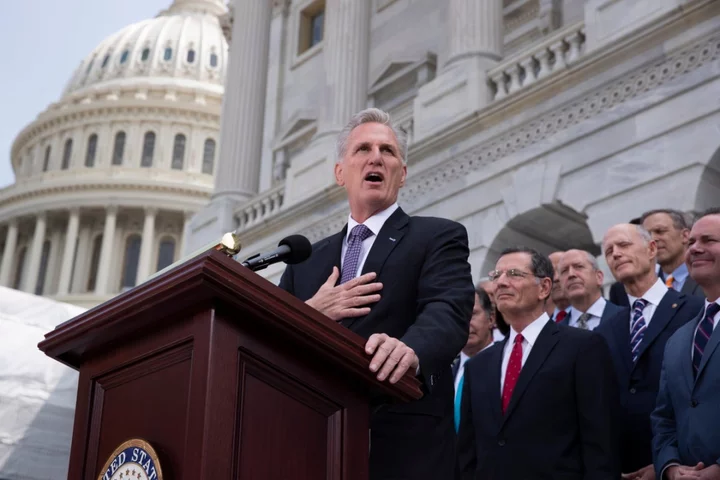
Anti-poverty groups and progressives blast work requirements for aid to poor Americans in debt ceiling deal
An agreement to raise the debt ceiling would expand the age bracket for eligibility for food assistance, adding a punitive and unnecessary barrier for poor Americans with only negligible savings for the federal government, advocacy groups have warned. Most Americans with low or no incomes who qualify for the Supplemental Nutrition Assistance Program (SNAP) must comply with certain work requirements to be eligible to receive funds to help pay for groceries. But under a deal struck between President Joe Biden and Republican House Speaker Kevin McCarthy, adults up to age 54 would be required to show proof of work. Republican lawmakers have pushed for years to expand those work requirements, but anti-poverty advocacy groups and progressives have argued that adding any such limitations to critical aid will only deepen hunger and poverty in the US, pointing to Congress’ own research showing that work requirements don’t appear to have any measurable effect on employment. “SNAP is a symptom of shortcomings in the economy,” Luis Guardia, president of the Food Research & Action Center, said in a statement. “Cutting off food for people unless they document sufficient hours of work does not improve their chances to secure family-sustaining wages, but does increase their food hardship.” In simple terms, a congressional vote to raise the debt ceiling would allow the US Department of Treasury to continue borrowing money to pay the country’s bills. But Republican lawmakers have leveraged the often routine though critical vote process to advance their agenda, as the nation stares down an imminent deadline that risks putting the US in default. “While we all recognize the catastrophic impact of a default, we are deeply disappointed that this deal includes cuts that further harm people experiencing hunger and poverty,” said Lisa Davis, senior vice president of Share Our Strength and its No Kid Hungry campaign. “As a whole, the punitive and ineffective SNAP changes included in this bill will save the US very little money,” she added. “They will also do nothing to remove barriers to make employment more attainable or available for those they impact. Nor are they based on evidence or experience. Instead, they are born from and rely on pervasive myths and misperceptions about SNAP and the people who benefit from the program and stand only to restrict food assistance for some Americans.” Republicans hold a fragile majority in the House of Representatives, where Mr McCarthy is relying on a slim margin of support from a far-right caucus that argues the cuts don’t go far enough. Meanwhile, progressive lawmakers – frustrated with the GOP’s “hostage crisis” process for negotiating a debt deal – strenuously object to stiffening work requirements and cuts to aid programs on which millions of Americans rely. Democratic US Rep Pramila Jayapal, who chairs the Congressional Progressive Caucus, will not support the debt plan, pointing to members who are “deeply, deeply concerned” about the proposals and the way in which Republicans threatened to steer the US into default to get GOP concessions. On a call with reporters on 30 May, Ms Jayapal compared Republicans’ threats on the debt limit to the party’s attempts to undermine the outcome of the 2020 presidential election. “We cannot have these constitutional obligations, including the very clear mandate to pay the country’s debts, as well as of course to ratify an election of a president that was voted upon by the democratic process ... taken hostage,” she said. The Biden administration has touted some new proposals in the deal as a victory: Military veterans, young people who have aged out of foster care, and people experiencing homelessness would be exempt from the SNAP work requirements. But “burdensome reporting requirements and bureaucratic red tape leave little confidence that this will outweigh the harmful expansion of these requirements for others in this category,” Ms Davis said in a statement. The nation’s largest food assistance program supported more than 42 million people in February, according to the latest data from the US Department of Agriculture. More than 65 per cent of SNAP recipients are in families with children, 36 per cent are in families with members who are older or disabled adults, and 41 per cent are in families that work, according to the Center on Budget and Policy Priorities. SNAP requires “able-bodied adults” without dependents to work or join job training programs for at least 80 hours a month to receive more than three months of benefits over three years. “SNAP’s primary objective is to help people put food on the table; any attempt to turn it into an employment program – particularly when extensive research shows that work requirements actually make it much harder, not easier, for people to find and keep jobs – runs contrary to the program’s mission and intent,” said Eric Mitchell, executive director of the Alliance to End Hunger. “In a time when food insecurity is rising and food prices remain high, we should be expanding our nation’s social safety net, not restricting it,” he added. The maximum monthly SNAP benefit for an individual is $281, “which makes the 80-hour work program route effectively the same as a job that pays $3.51 per hour,” or less than half the federal minimum hourly wage of $7.25, People Policy Project’s Matt Bruenig noted. Progressive lawmakers and advocacy groups have also lambasted the debt deal for tying the fate of federal programmes for some of the poorest Americans to a politically volatile debate. What happens for someone over 50 years old who is unable to work and is cut off from assistance? How can they navigate a difficult labour market rife with age discrimination? Anti-poverty advocates and critics of so-called “means-testing” structures around receiving government aid have argued that adding additional burdens for work requirements underscores their futility. “We shouldn’t be playing politics with programs that help Americans meet their basic needs,” Ms Davis said. Anti-hunger groups have also objected to other changes to other assistance programs for lower-income-earning Americans, including changes to a federal cash assistance program that House Republicans had previously threatened with drastic cuts. “Hungry people cannot wait – but now they will need to wait even longer,” Mr Garcia said. “Our leaders should be creating pathways to progress, not pulling out the rug from those trying to get back on their feet.” Read More Debt ceiling vote – live: AOC, Boebert and Gaetz join growing opposition as Biden-McCarthy deal faces full House vote today What’s in the cliffhanger deal struck by Biden and McCarthy to raise the debt limit? House Republican majority cut by one after shock resignation of congressman
2023-06-01 00:48

Sudan factions agree to extend ceasefire deal amid clashes
By Khalid Abdelaziz and Aidan Lewis DUBAI (Reuters) -Sudan's warring military factions agreed on Monday to a five-day extension of
2023-05-30 04:58
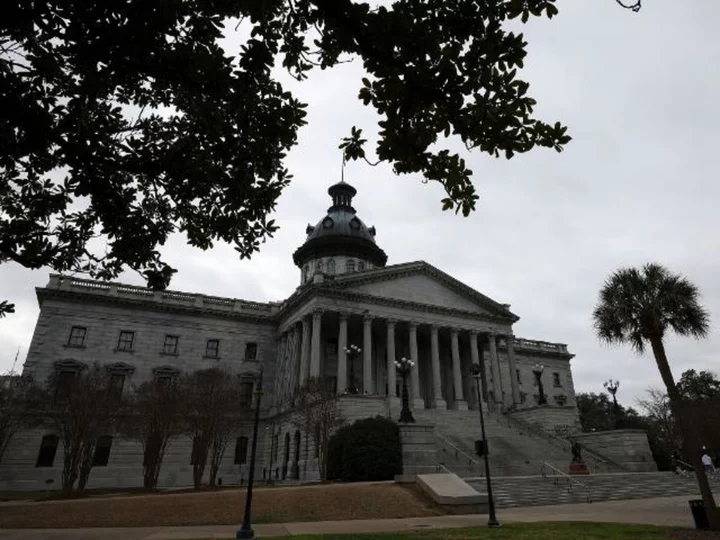
State judge temporarily blocks South Carolina's 6-week abortion ban
A South Carolina judge has temporarily blocked the state's new abortion restrictions from going into effect, just one day after the governor signed them into law.
2023-05-27 00:59
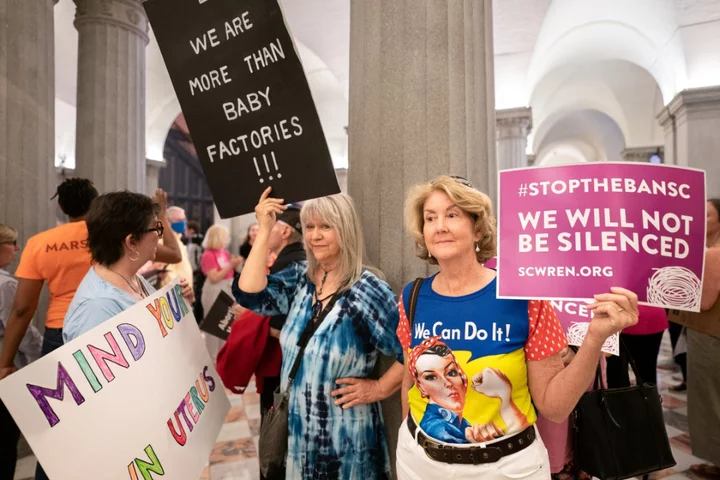
South Carolina judge halts six-week abortion ban as state Supreme Court set to review new law
The day after the state’s Republican governor signed the ban into law, a judge in South Carolina has blocked a measure outlawing abortion at roughly six weeks of pregnancy. Abortion rights advocates and civil rights groups filed a lawsuit moments after Governor Henry McMaster announced his signature on the bill. South Carolina’s latest law – which could extend the sweeping restrictions and outright bans on abortion care across the entire US South, and threaten legal access to care for millions of Americans – is nearly identical to a bill that was blocked by the state Supreme Court last year. The decision on Friday means the state’s abortion regulations revert to previous rules that allow for abortion care up until about 20 weeks after after fertilization. “The status quo should be maintained until the Supreme Court reviews its decision,” Judge Clifton Newman said. “It’s going to end up there.” His decision on 26 May comes just four months after the state’s Supreme Court permanently struck down a similar measure, which the court determined ran afoul of the state’s constitution. Restrictions on abortion care “must be reasonable and it must be meaningful in that the time frames imposed must afford a woman sufficient time to determine she is pregnant and to take reasonable steps to terminate that pregnancy,” Justice Kaye Hearn wrote in the majority opinion on 5 January. More than a dozen states, mostly in the South, have outlawed most abortions or severely restricted access within the year after the Supreme Court’s ruling in Dobbs v Jackson Women’s Health Organization, which revoked a constitutional right to abortion care that was affirmed by the decision in Roe v Wade for nearly half a century. South Carolina remains the only state south of Virginia without severe restrictions or outright bans on abortion care past the 12th week of pregnancy. Most of those states have moved to ban abortion in nearly all cases with limited or no exceptions. Last year, lawmakers in South Carolina failed to adopt an anti-abortion law that would ban nearly all abortions in the state, but a six-week ban took effect shortly after the Supreme Court’s ruling on 24 June. In a statement following the governor’s signature on the latest six-week ban, White House press secretary Karine Jean-Pierre lambasted Republican lawmakers who are “dismantling women’s rights across the South, putting their health and lives in jeopardy. “ South Carolina’s ban will cut off access to abortion for women in the state and those across the entire region for whom South Carolina is their closest option for care,” she added. This is a developing story Read More North Carolina Republicans approve 12-week abortion ban as sweeping restrictions spread across US South Senator who voted for anti-trans bill that passed by one vote admits she wasn’t paying attention From the Civil War to today's mattress sales, Memorial Day is full of contradiction GOP leaders in Kansas back off threat to sue Democratic governor over education funding DeSantis pushes past embarrassing campaign start, outlines travel schedule for early state visits
2023-05-27 00:20
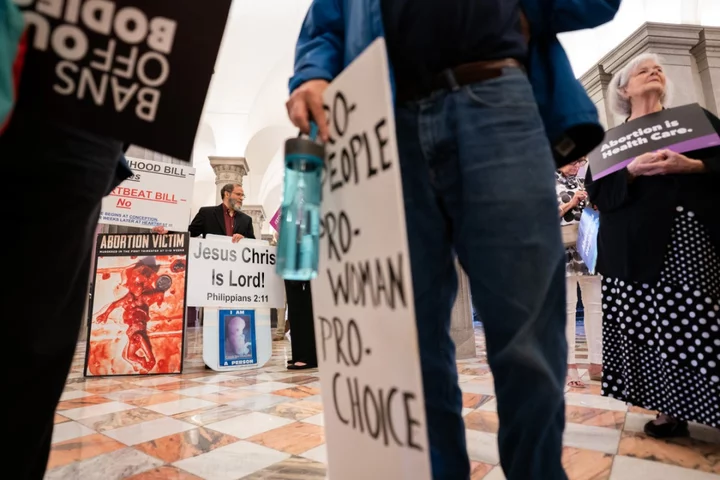
South Carolina enacts six-week abortion ban, threatening access across entire South
The state of South Carolina has outlawed abortion at roughly six weeks of pregnancy, extending the sweeping restrictions and outright bans on abortion care across the entire US South, and threatening legal access to care for millions of Americans. Republican Governor Henry McMaster signed legislation into law on 25 May after the bill’s final passage earlier this week. It goes into effect immediately. Republican lawmakers in neighbouring North Carolina recently voted to override the Democratic governor’s veto of a bill outlawing abortion at 12 weeks of pregnancy, restricting abortion access in a state that has been a haven for abortion care in the year after the US Supreme Court’s decision to reverse Roe v Wade. More than a dozen states, mostly in the South, have outlawed most abortions or severely restricted access within the year after the Supreme Court’s ruling in Dobbs v Jackson Women’s Health Organization, which revoked a constitutional right to abortion care that was affirmed for nearly half a century. Abortion rights restrictions in North Carolina and a six-week ban in South Carolina dramatically change the map for abortion access in the US, where abortions are banned in most cases from Texas to West Virginia and along the Gulf Coast, making legal access to care out of reach altogether across the Deep South. Abortion rights advocates and civil rights groups have filed a lawsuit to challenge South Carolina’s law in court. The lawsuit comes just four months after the state’s Supreme Court permanently struck down a nearly identical law, which the court determined ran afoul of the state’s constitution. Restrictions on abortion care “must be reasonable and it must be meaningful in that the time frames imposed must afford a woman sufficient time to determine she is pregnant and to take reasonable steps to terminate that pregnancy,” Justice Kaye Hearn wrote in the majority opinion on 5 January. “Six weeks is, quite simply, not a reasonable period of time for these two things to occur,” the judge added. Jenny Black, president and CEO of Planned Parenthood South Atlantic, said in a statement that South Carolina lawmakers “have once again trampled on our right to make private health care decisions, ignoring warnings from health care providers and precedent set by the state’s highest court just a few months ago.” “The decision of if, when, and how to have a child is deeply personal, and politicians making that decision for anyone else is government overreach of the highest order,” she added. “We will always fight for our patients’ ability to make their own decisions about their bodies and access the health care they need. We urge the court to take swift action to block this dangerous ban on abortion.” Governor McMcaster has pledged to defend the law in court. “We stand ready to defend this legislation against any challenges and are confident we will succeed,” he said in a statement. “The right to life must be preserved, and we will do everything we can to protect it.” Read More Mother forced to give birth to stillborn son joins lawsuit against Texas abortion ban Senator who voted for anti-trans bill that passed by one vote admits she wasn’t paying attention Twitter's launch of DeSantis' presidential bid underscores platform's rightward shift under Musk Timeline: How Georgia and South Carolina nuclear reactors ran so far off course Georgia nuclear rebirth arrives 7 years late, $17B over cost
2023-05-26 00:29
